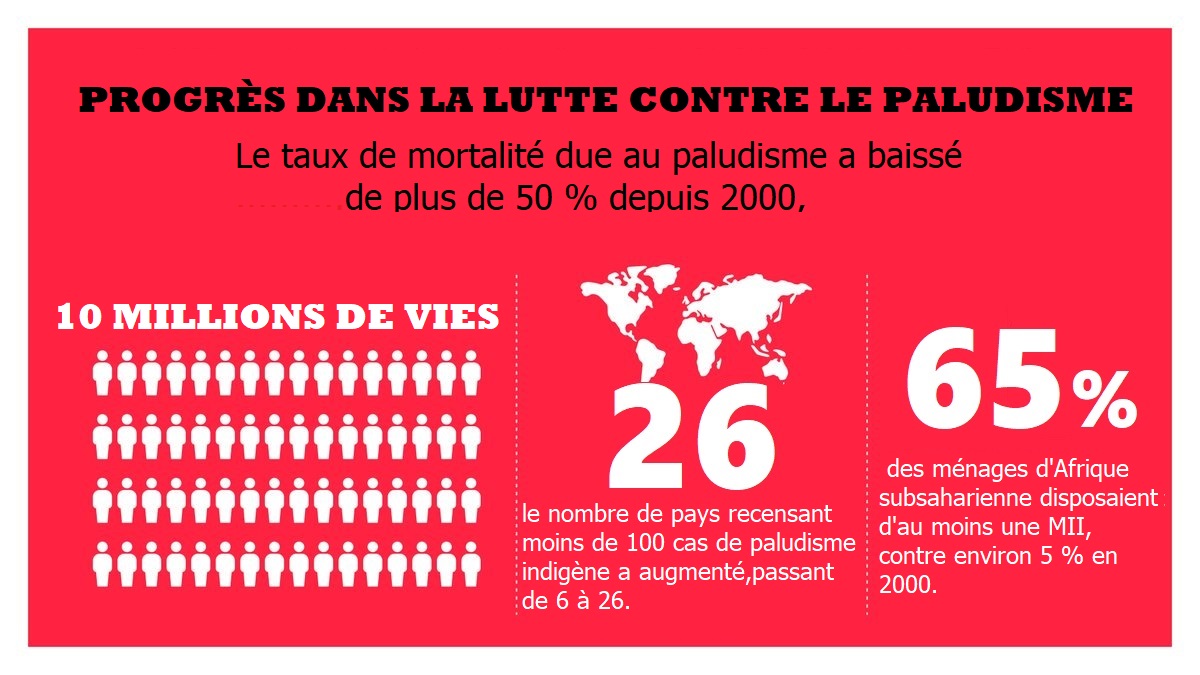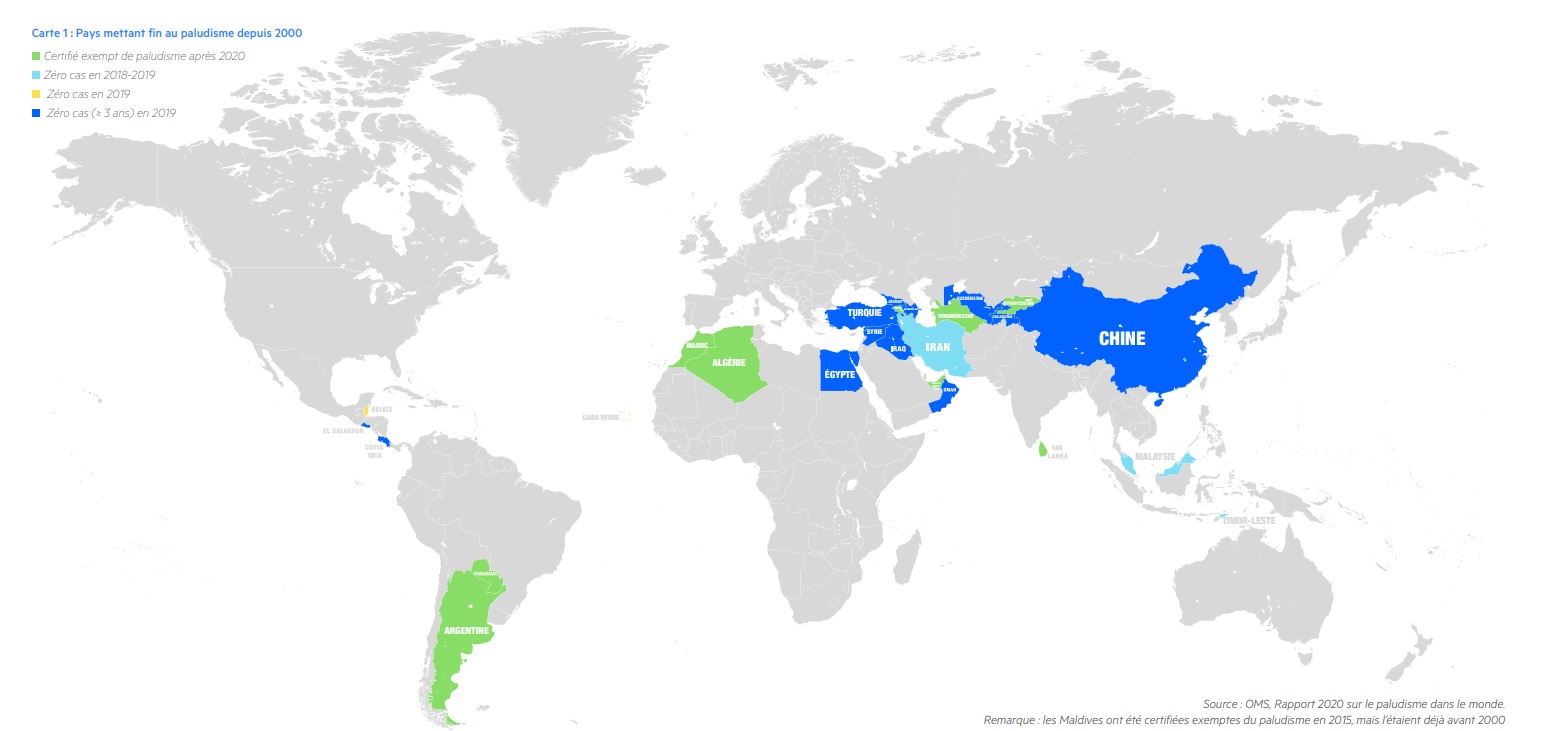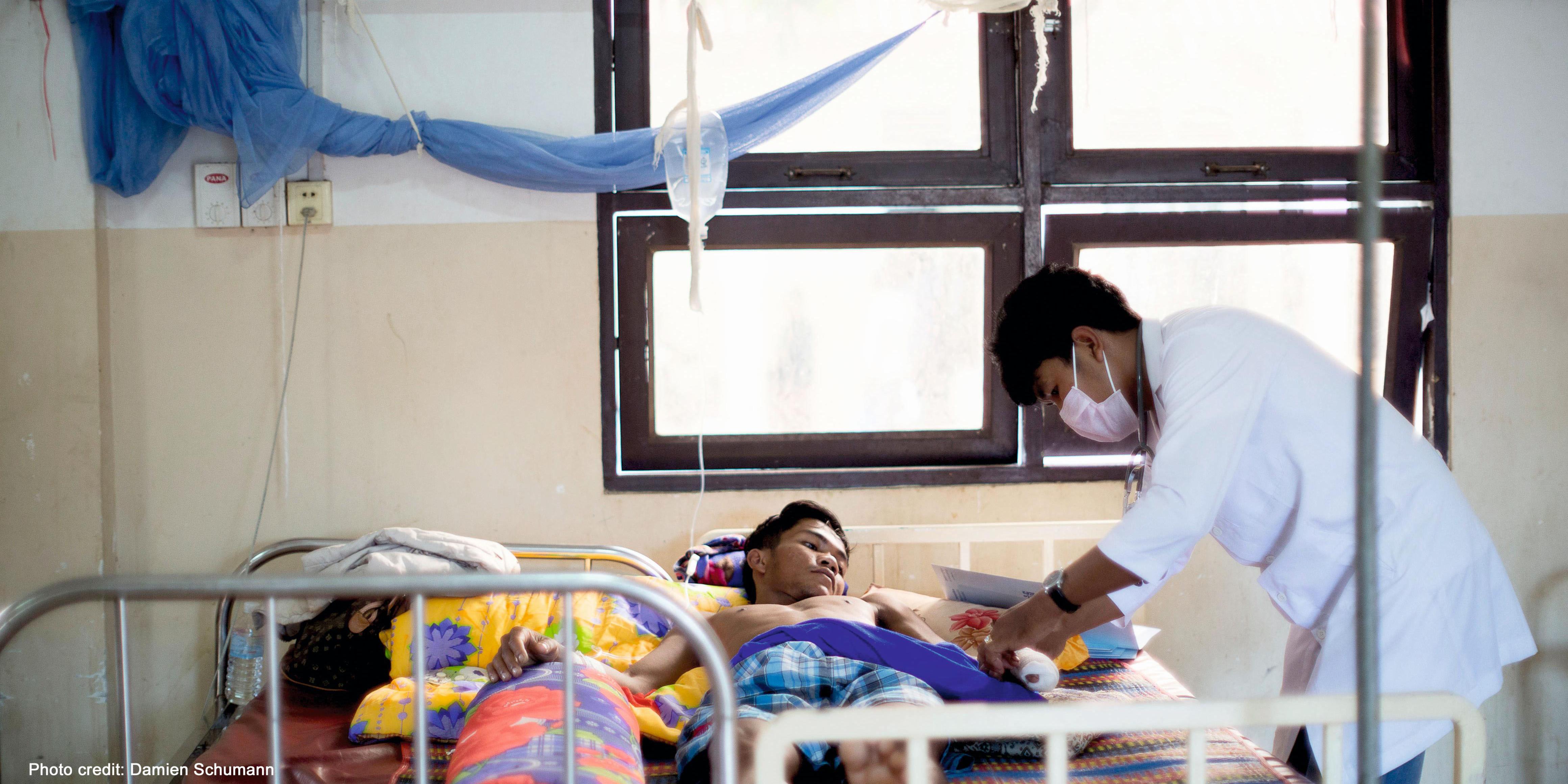Depuis sa création en 1998, le Partenariat RBM a joué un rôle crucial dans les efforts mondiaux qui ont permis de réduire de plus de 50 % le nombre de décès dus au paludisme et de sauver 10.6 millions de vies. Le Partenariat s’est maintenant engagé à tirer parti de ces progrès remarquables et à mettre définitivement fin au paludisme.
Parallèlement, le monde a connu des avancées sans précédent dans le domaine de la lutte contre le paludisme : la charge de morbidité et la transmission de la maladie, l’architecture mondiale de la santé, l’environnement international et le leadership, en particulier dans des pays touchés par le paludisme, ont tous considérablement changé.
Nous voyons de plus en plus de pays se rapprocher de l’objectif d’élimination du paludisme. L’Europe reste une région exempte de paludisme. Un certain nombre de pays africains ont réalisé des améliorations impressionnantes en matière de tests de diagnostic et de surveillance.

-
Depuis 2000, 13 pays ont été certifiés sans paludism (Algeria, Argentina, Armenia, China, El Salvador, Kyrgyzstan, Maldives, Morocco, Paraguay, Sri Lanka, Turkmenistan, United Arab Emirates and Uzbekistan).

RBM, founded in 1998, has never treated a patient; nor has it delivered a single bed net or can of insecticide. Rather, RBM has worked across the field of malaria eradication by helping to build public awareness, aggregate and share technical information with a system of global stakeholders, and mobilize funding.” -- Source: Stanford Social Innovation Review, January 2018

